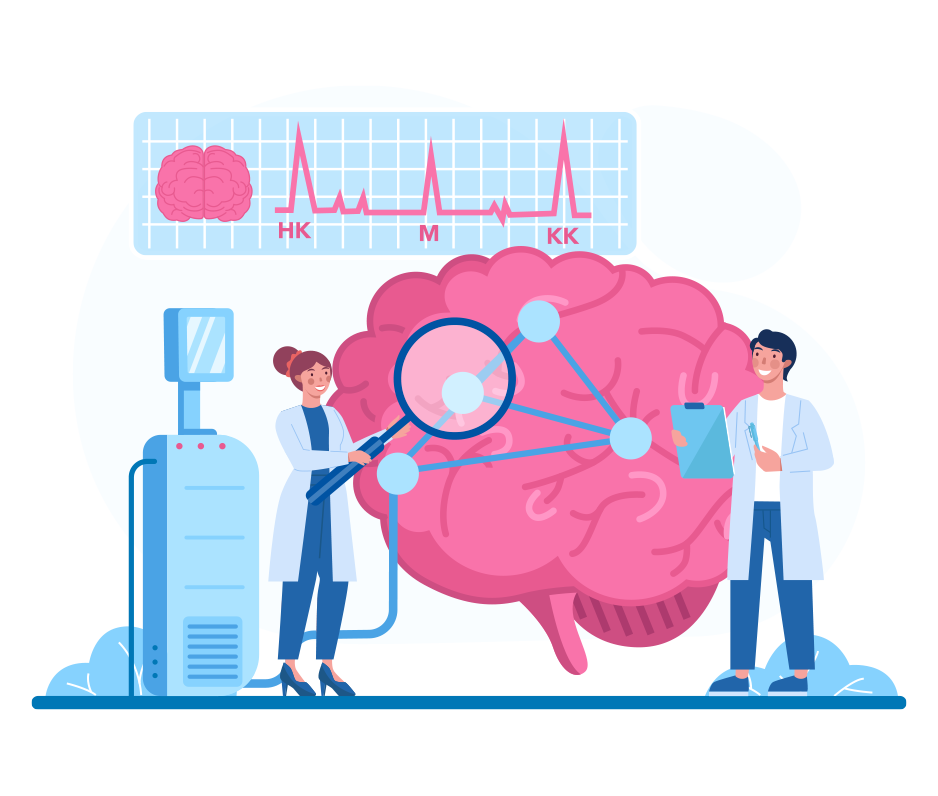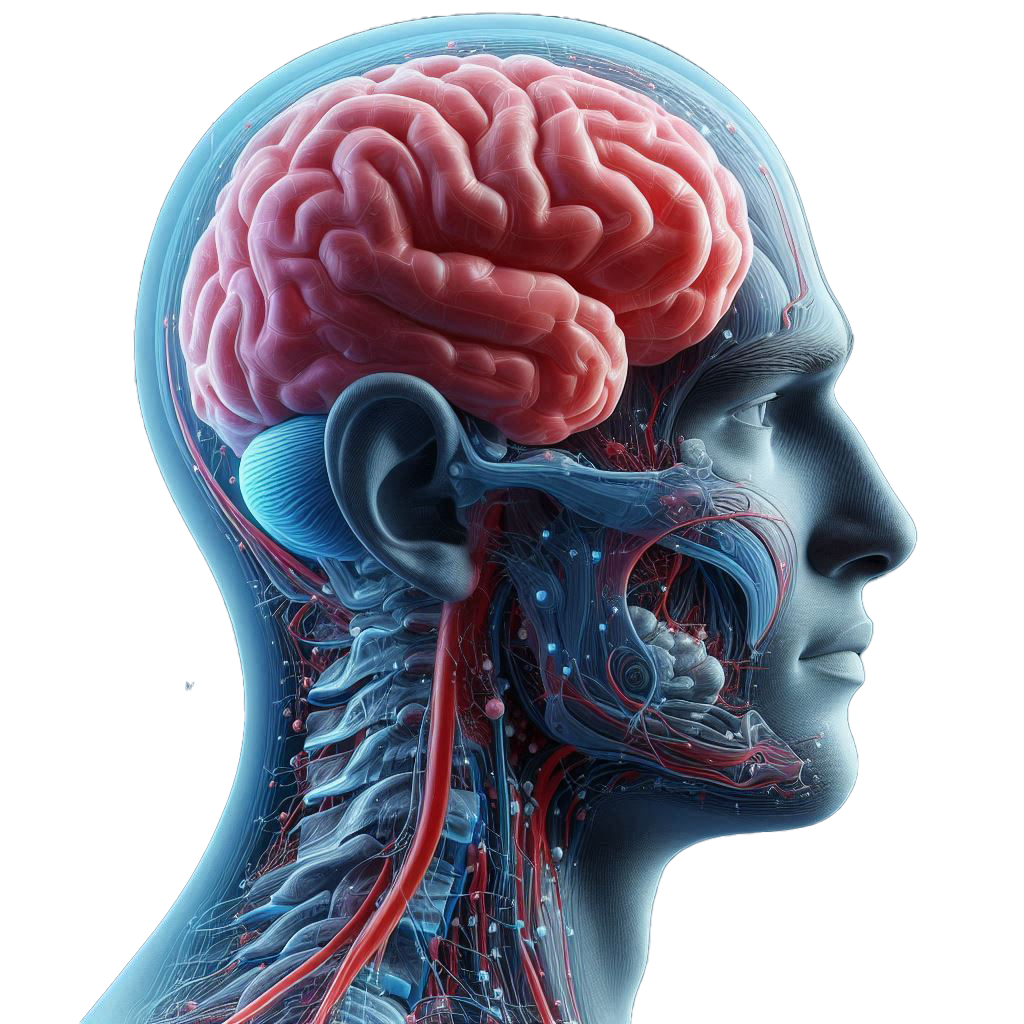This Course Structure is Curated as per the NEP-2020 Guidelines
Course Overview
M.Sc. Neuroscience Technology program at Malla Reddy Vishwavidyapeeth, Hyderabad, is a postgraduate course designed to train students to assist neurologists in diagnosing and managing neurological disorders using advanced neurodiagnostic techniques and cutting-edge technology.
This program focuses on equipping students with the theoretical knowledge and hands-on skills from 1st semester itself. This program provides in-depth training in neuroimaging modalities, electrophysiological techniques such as EEG and EMG, and neurotherapeutic procedures for conditions like epilepsy, stroke, and neurodegenerative diseases. The curriculum emphasizes hands-on experience with sophisticated equipment and the analysis of complex neurological data, ensuring students are prepared to support healthcare teams in diagnosing and treating neurological conditions effectively.
Graduates of this program emerge as ‘Skilled Neuroscience Technologists’, enabling them to pursue further higher studies and research in Neuroscience Technology, along with plenty of job opportunities globally.

Course Details
Description: 2 Years Degree Program
No. of Seats: 20
No. of Credits: 80 minimum & as specified
- Eligibility
- Curriculum Structure
- Program Outcomes
- Career Enhancement
- Higher Studies
- Job Roles & Progression
The minimum eligibility is a B.Sc. degree in Neuroscience Technology, Neurology Technology or equivalent with at least 50% aggregate marks from a recognized university.
| Semester | Name of the Subject |
| Semester 1 | Advanced Neuroanatomy Neurophysiology Fundamentals of Neurodiagnostic Techniques Neuropharmacology Practical: Neuro diagnostics |
| Semester 2 | Neuroimaging Techniques Electrophysiology Neurophysiological Monitoring Cognitive Neuroscience Practical: Neuroimaging Techniques |
| Semester 3 | Neurological Disorders and Treatments Clinical Neurophysiology Rehabilitation in Neuroscience Advanced EEG and EMG Techniques Practical: Clinical Neurophysiology |
| Semester 4 | Neurocritical Care Neuroinformatics Research Methodology and Biostatistics Thesis/Research Project Practical: Neurocritical Monitoring Techniques |
- Neurodiagnostic Techniques: Proficiency in performing EEG, EMG, and other diagnostic procedures to assess brain and nerve function.
- Neuroimaging Proficiency: Expertise in MRI, CT, and PET imaging, essential for diagnosing neurological disorders.
- Electrophysiological Monitoring: Skills in using advanced electrophysiological tools to monitor neural activity, including intraoperative monitoring.
- Neurocritical Care Management: Ability to support critically ill patients with neurological conditions in ICU settings.
- Neurological Rehabilitation: Techniques for managing and rehabilitating patients with neurological impairments.
- Data Analysis and Neuroinformatics: Understanding of neuroinformatics tools and data analysis for research and clinical applications.
- Certification in Clinical Neurophysiology: Focuses on techniques like EEG, EMG, and nerve conduction studies.
- Advanced Neuroimaging Certification: Specialized training in MRI, fMRI, and PET scans for detailed brain and neurological assessments.
- Neurocritical Care Certification: Emphasizes skills for managing critical neurological cases, particularly in ICU settings.
- Neuroinformatics and Data Analysis Certification: Covers data management and analysis specific to neuroscience research and diagnostics.
- Neuroscience Research Methodology: Provides skills for conducting research in neuroscientific fields, including clinical trials and experimental studies.
- Ph.D. in Neuroscience or Neurotechnology
- Fellowship in Neurophysiology or Neuroimaging
- Postgraduate Diploma in Neurological Rehabilitation
- Advanced Certifications in Cognitive Neuroscience or Neuroinformatics
| Duration | Roles and Responsibilities | Salary Range |
| 0-3 years | Neurodiagnostic Technician, EEG/EMG Technologist | ₹4,00,000 – ₹6,00,000 per annum |
| 3-5 years | Senior Neurotechnologist, MRI/CT Neuroimaging Specialist | ₹6,00,000 – ₹9,00,000 per annum |
| 5-10 years | Neurocritical Care Specialist, Neuroscience Lab Manager | ₹9,00,000 – ₹15,00,000 per annum |
| 10+ years | Director of Neuroscience Services, Chief Neuroscience Technologist | ₹15,00,000+ per annum |
Note: Salaries vary based on experience, location, and type of healthcare institution.

Fee Structure Per Academic Year
| Tuition Fee | Miscellaneous Fee | Scholarship | ||
| 200000 ₹ | 10000 ₹ | Above 90% – 40000 ₹ | Between 81-90% – 20000 ₹ | Between 71-80% – 10000 ₹ |




